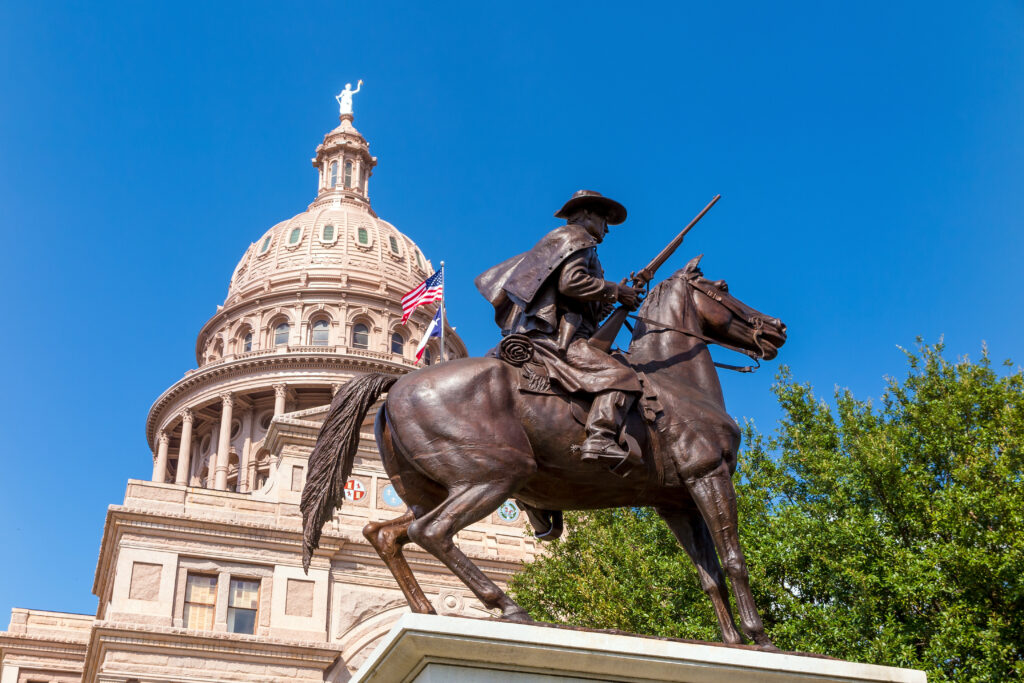Lawsuits Have Blocked Trump’s Anti-Voting Executive Order. GOP States Are Implementing It Anyway

Much of President Donald Trump’s anti-voting executive order has been blocked by judges. But it’s having an impact nonetheless — by encouraging and emboldening state-level Republicans to pursue its anti-democratic goals.
The March executive order purported to direct the U.S. Election Assistance Commission (EAC) to require documentary proof of citizenship on its voter registration forms, and to require state agencies registering voters to do the same. The order also aimed to pressure states to reject mail-in ballots received after election day, among other steps.
Courts quickly blocked those provisions, holding that Trump exceeded his executive authority in an area the Constitution left to the states and Congress. Other provisions of the order — including directives to make federal databases like the U.S. Citizenship and Immigration Services’ Systematic Alien Verification for Entitlements (SAVE) available to state election officials — were allowed to remain in effect.
But across the nation, GOP election officials and lawmakers are implementing much of the substance of Trump’s order — often describing strict new voting rules as efforts to comply with the presidential decree. And even before the order was issued, some states were already taking steps that closely mirror some of its key provisions.
In North Dakota, Secretary of State Michael Howe explained to local news that he “worked with the legislature and changed the law to match the executive order,” by moving the deadline for absentee ballots to election day. Howe told Minot Daily News that, in 2024, 392 mailed ballots, or around 0.1% of all ballots cast statewide, arrived after election day last year.
In a separate opinion piece, Howe described the law change as “aligning North Dakota law with President’ Trump’s executive order.”
Missouri Secretary of State Denny Hoskins similarly told LindellTV that he was in Washington, D.C. last week along with other Show-Me State officials in part to “make sure we’re compliant with Trump’s election executive order.”
Hoskins noted that he needed legislative action to implement even stricter voter ID laws.
At least 15 states have moved quickly to take advantage of the order’s directive on sharing data collected by CIS, the Social Security Administration, the State Department and the so-called Department of Government Efficiency. Notably, states with access to CIS’s SAVE database can use social security numbers to verify U.S. citizenship.
In announcing the partnerships, a few Republican officials, like Louisiana’s Secretary of State Mary Landry, thanked Trump for the order, noting that the Biden Administration had previously refused to share SAVE data.
Landry also said Trump’s order would help her office implement the voter ID law Louisiana passed last year.
Republican election officials have also made a show of referring potential noncitizens who are registered to vote to state and federal law enforcement. The order directs the Attorney General to “prioritize enforcement,” of non-citizen voter registrations.
Texas Secretary State Jane Nelson issued a press release noting 33 such referrals in June, crediting the SAVE database and Trump’s order.
Other states appear to have gained access to federal databases even before Trump’s order. Iowa Secretary of State Paul Pate announced his office had found 277 noncitizens registered thanks in part to SAVE on March 20 – five days before the executive order.
Indeed, GOP officials have been working to impose stricter voting rules since long before Trump’s order.
“I appreciate President Trump’s decisive leadership to protect the integrity of our elections,” said Frank LaRose, Ohio’s secretary of state. “Fortunately, I can say that a lot of this we already do in Ohio.”
“We already comply with many of the other points addressed in the President’s executive order,” Nebraska Secretary of State Robert Evnen said in a March 27 statement praising the federal data-sharing provisions.
The same day of Trump’s executive order, the Kansas legislature overrode a gubernatorial veto on a bill that required ballots to be received by election day. West Virginia became the 36th state with a voter ID requirement in April, and the 24th requiring voters to show ID at the polls.
The executive order’s preamble complains about ballot-initiative-related expenditures by foreign nationals. A handful of states this year have taken steps to make it harder for voters to launch ballot initiatives, which have emerged as an effective way for backers of popular progressive causes to get around GOP-controlled state legislatures. Arkansas implemented a voter ID requirement on ballot initiative petitions, while Louisiana, Mississippi, and Missouri banned foreign funding of ballot measures.
Many GOP officials have pointed to the EO to demonstrate their political alignment with Trump. In addition to praising the executive order when it was released, Wyoming Secretary of State Chuck Gray has criticized federal judges for blocking aspects of it. Gray also wrote a public comment to the EAC, urging the commissioners to implement the order.
Georgia Secretary of State Brad Raffensberger — who famously stood up to Trump after the state backed Joe Biden in 2020 — similarly credited the executive order for “implementing the exact improvements we called for.”